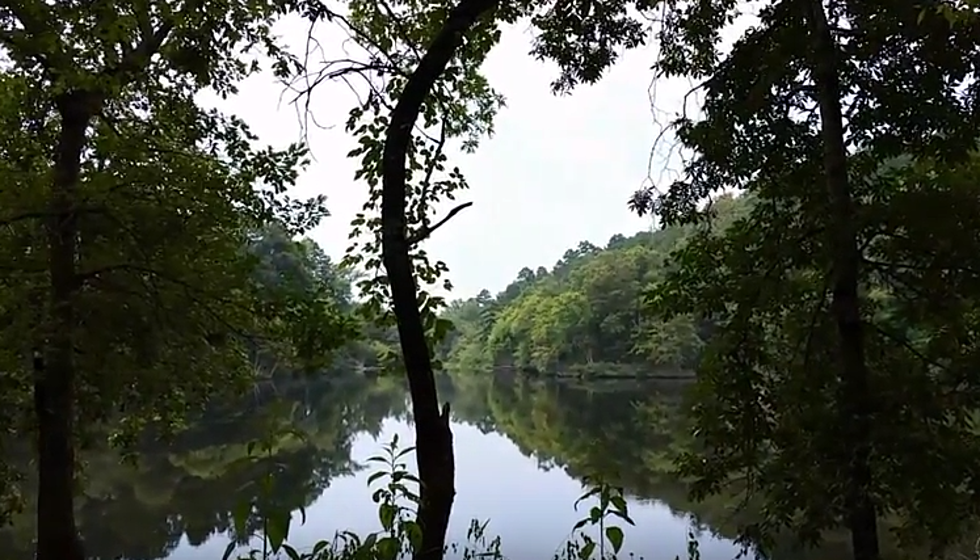![Another Ball of Bees? Part 2 [PHOTOS]](http://townsquare.media/site/152/files/2014/04/bee-ball-day-2-472x630.jpg?w=980&q=75)
Another Ball of Bees? Part 2 [PHOTOS]
I told you yesterday about the ball of bees in my neighbor's tree. My husband went outside yesterday morning and it happened AGAIN! What are the chances?
John saw them swarm and start to gather in the same place on the same tree as the day before. He took a picture and emailed Dr. Gibson. saying "They're Baaack!" Robbie Hines stopped by the house to take a look and yep! More bees! Only a different hive and a bigger ball!
The funny thing is, John and I were just talking about the stories in the news of bees dying just last week. I think Texarkana is good!
Dr. Gibson told us that the queen from the original "ball of bees" left her pharamones so her hive could locate her. After they took those bees away, a scout bee from another hive probably caught the scent and thought, if it's good enough for them, it's good enough for us too! Then flew back to the hive to spread the word.
He also told us how a queen bee is made. I figured it was a totally different kinda of bee, but as it turns out it's like all the other bee larva. If the present queen is getting old or is a virgin bee. The hive will choose a larva to become queen. Bees nurture all the eggs with about 3 days of Royal Bee Jelly, but the "chosen one" will get up to 6 days. The Royal Jelly develops the ovaries in the queen bee. She is the only bee in a hive with ovaries and therefore able to reproduce and lay eggs.
Robbie Hines talked about how sophisticated bee colonies are as well. The larva in a bee hive needs to stay at a temperature around 94 degrees. In cooler temperatures the bees will all huddle together to generate heat for their young. In the hot summer months, bees will actually go to the outer parts of a hive and start fanning their wings to make a cross breeze to cool the larva.
I'm in awe of these insects! The complexity of the bee society is just amazing! I think I want to be a bee keeper when I grow up!
Dr. Gibson and Robbie Hines both have a ton of knowledge about bees. If you find a ball of bees, have problems with bees or want to become a bee keeper yourself call Dr. Richard Gibson at 903-832-3146 and Robbie Hines at 903-278-7745.
More From Kicker 102.5







![Fast & Cheap Reviews: Ezzzy-Jig Bracelet Maker [VIDEO]](http://townsquare.media/site/152/files/2015/08/Ezzzy-Jig-Bracelet-Maker-Review-YouTube-Google-Chrome.png?w=980&q=75)

